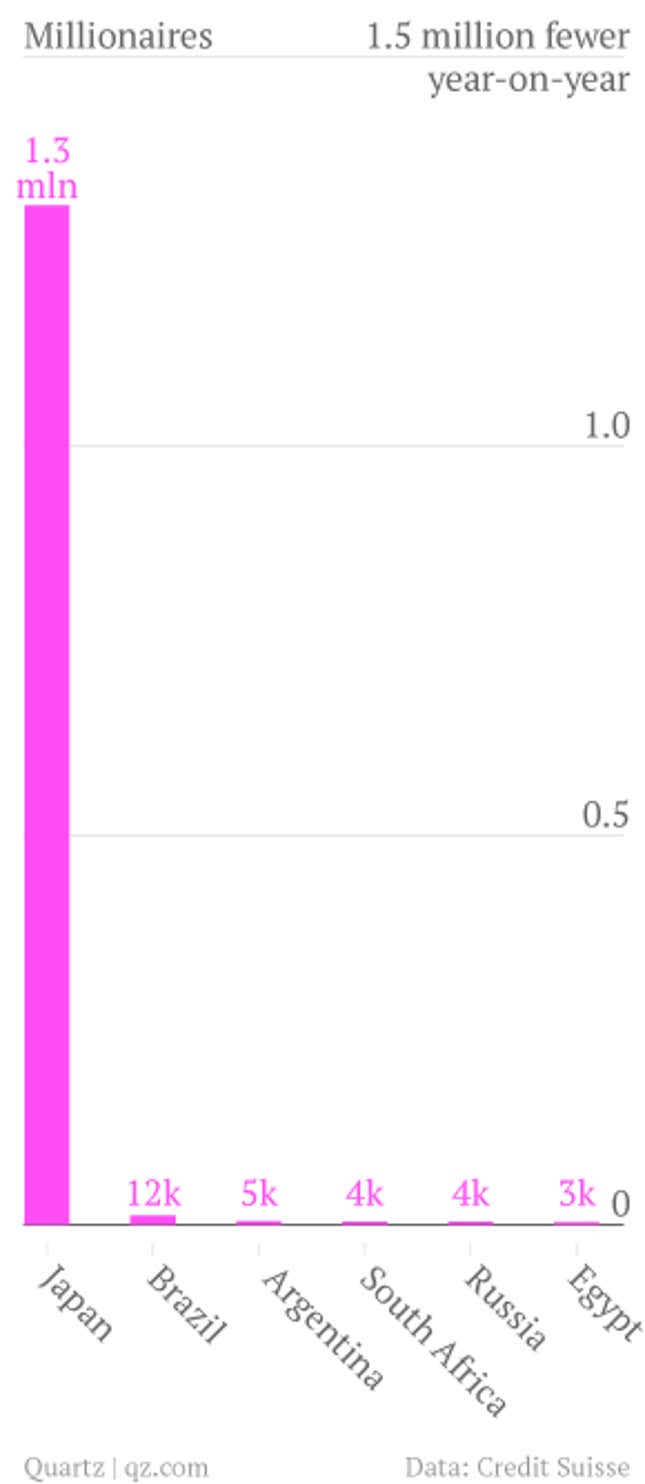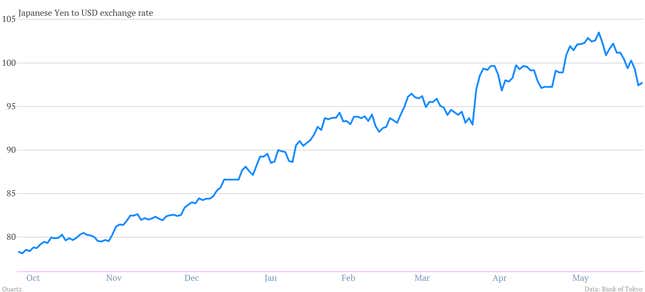The greatest consolation to being kicked out of the millionaire’s club may be knowing that your rich friends went down with you.
Nowhere is that truer than in Japan, which lost 1.3 million millionaires between June 2012 and June 2013, according to Credit Suisse’s Global Wealth report (pdf) released earlier this week.

No other country lost anywhere near that amount of wealth. In fact, no other country lost more than 12,000 millionaires (millionaires, of course, refer to households with $1 million or more in assets). The country with the second highest loss in millionaires—100 times fewer than in Japan—was Brazil. The drop is a stark contrast to last year when Japan saw its millionaire population increase by almost half a million.
What’s been obliterating millionaires has to do with ”Abenomics,” the aggressive economic reform plan to defeat deflation spearheaded by Japanese prime minister Shinzo Abe. The policy has driven the yen/dollar exchange rate down by 22% over the past year, which has in turn driven down household wealth by $5.8 trillion over that time period. That’s roughly 20% of the country’s total net worth, according to the report. (The policy also led to a 52% surge in the Nikkei over that time period, but stocks account for less than 10% of household financial wealth.)
For another frame of reference, Japan lost more millionaires than there are millionaires in China (1.1 million) and accounted for 98% of the losses in millionaires worldwide. “Japan completely dominates the list,” the report says(p. 23).

But this doesn’t quite mean that the east Asian country is sliding in terms of prosperity. According to a United Nations report last year that evaluated “wealth” in terms of education and skills, natural resources, and “manufactured” or physical assets like infrastructure, Japan is second only to the United States and 2.8 times wealthier than China. Average disposable income for Japanese households is $24,147 a year, above the OECD average and not much below America’s. (Other OECD measures like employment and life expectancy are also higher than the average.) In any case, even if China has now overtaken the country as the world’s second largest economy, Japan still has more millionaires—about 1.1 million more—than China.
